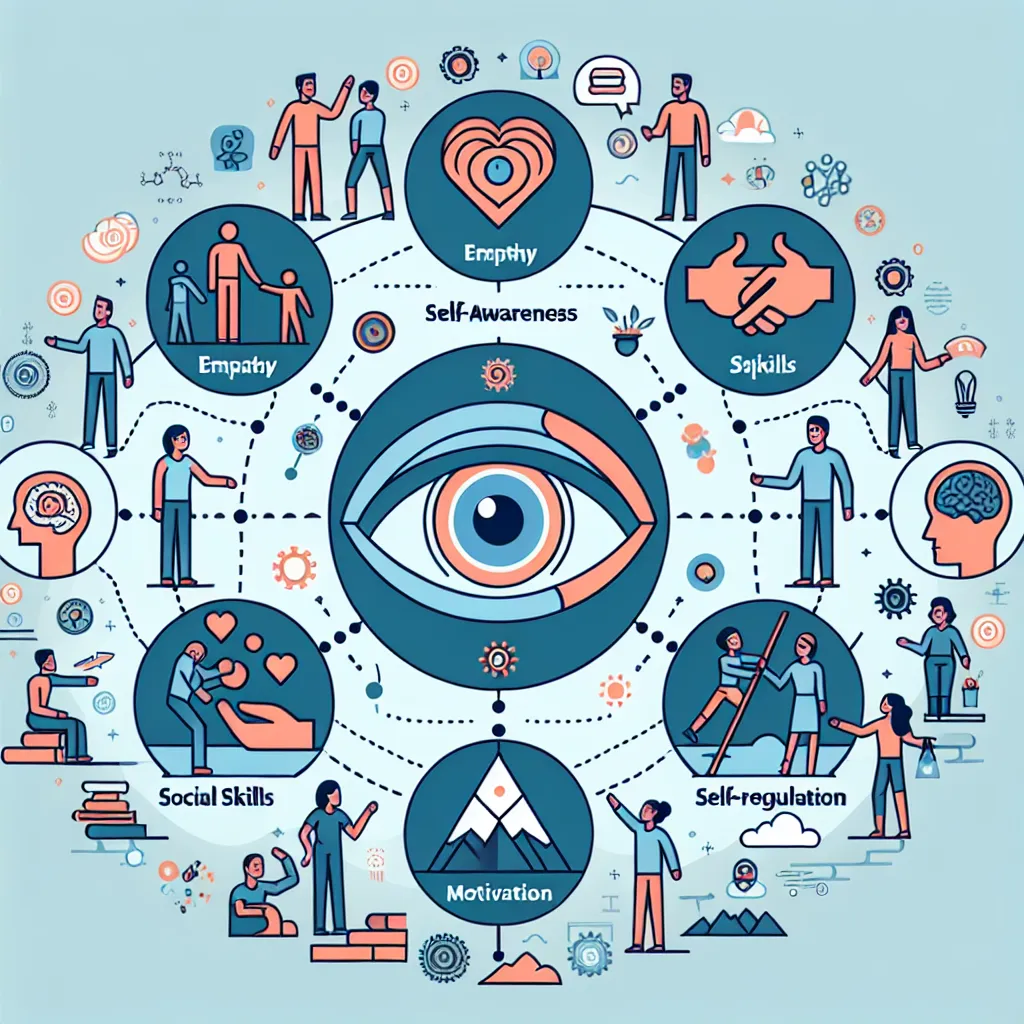Emotional intelligence (EI) has become a crucial factor in job interviews, with many employers recognizing its importance in the workplace. As a job seeker, being prepared to answer questions about your emotional intelligence can significantly boost your chances of success. This comprehensive guide will help you navigate EI-related questions with confidence and showcase your interpersonal skills effectively.
Understanding Emotional Intelligence in the Interview Context
Emotional intelligence refers to the ability to recognize, understand, and manage your own emotions, as well as the emotions of others. In a job interview, employers assess your EI to determine how well you might handle workplace relationships, stress, and challenging situations.
Why Employers Value Emotional Intelligence
- Better teamwork and collaboration
- Improved leadership potential
- Enhanced conflict resolution skills
- Increased adaptability to change
- Greater self-awareness and self-management
 Emotional Intelligence Interview
Emotional Intelligence Interview
Common Emotional Intelligence Interview Questions and Sample Answers
1. “How do you handle stressful situations?”
Sample Answer: “I approach stressful situations by first taking a moment to assess the root cause of the stress. Then, I prioritize tasks and break them down into manageable steps. For example, in my previous role, we faced a tight deadline for a major project. I organized a team meeting to delegate tasks effectively and established clear communication channels. This approach not only helped us meet the deadline but also reduced stress levels within the team.”
2. “Can you describe a time when you had to resolve a conflict with a colleague?”
Sample Answer: “In my last position, I had a disagreement with a coworker about the best approach for a marketing campaign. Instead of letting it escalate, I suggested we have a private discussion. I actively listened to their perspective and shared mine, focusing on our common goal of creating a successful campaign. By finding common ground and compromising on certain aspects, we developed a stronger, more cohesive strategy that incorporated both of our ideas.”
3. “How do you respond to feedback, especially when it’s critical?”
Sample Answer: “I view feedback, including criticism, as an opportunity for growth. When receiving critical feedback, I first thank the person for their input. Then, I take time to reflect on the feedback objectively. For instance, when my manager pointed out areas for improvement in my presentation skills, I asked for specific examples and suggestions. I then created an action plan to work on those areas, which significantly improved my performance in subsequent presentations.”
4. “Describe a situation where you had to motivate a team member who was struggling.”
Sample Answer: “In a previous project, I noticed a team member was becoming disengaged. I approached them privately and asked if everything was alright. They shared that they felt overwhelmed by the project’s complexity. I worked with them to break down their tasks into smaller, more manageable steps and offered additional support. We also discussed their strengths and how they could best contribute to the project. This personalized approach helped boost their confidence and re-engage them in the team’s efforts.”
5. “How do you adapt to changes in the workplace?”
Sample Answer: “I embrace change as an opportunity for growth and innovation. When our company implemented a new CRM system, some team members were resistant. I took the initiative to learn the system thoroughly and then organized informal training sessions for my colleagues. By highlighting the benefits and addressing concerns, I helped ease the transition. This approach not only improved team morale but also led to a smoother implementation process.”
Tips for Answering Emotional Intelligence Questions
- Use the STAR method (Situation, Task, Action, Result) to structure your responses.
- Provide specific examples from your past experiences.
- Demonstrate self-awareness by acknowledging both strengths and areas for improvement.
- Show empathy and understanding of others’ perspectives in your answers.
- Highlight your ability to learn and grow from challenging situations.
 Emotional Intelligence Skills
Emotional Intelligence Skills
Common Mistakes to Avoid When Answering EI Questions
- Giving generic answers without specific examples
- Focusing solely on technical skills and ignoring interpersonal aspects
- Appearing defensive or dismissive when discussing challenges
- Failing to show self-reflection or personal growth
- Neglecting to demonstrate empathy or understanding of others’ emotions
Follow-up Questions and Suggested Responses
-
“How do you maintain emotional balance in high-pressure situations?”
Suggested Response: “I practice mindfulness techniques daily, which helps me stay centered during stressful times. Additionally, I prioritize tasks and communicate openly with my team to manage expectations and reduce unnecessary pressure.” -
“Can you give an example of how you’ve used empathy in a professional setting?”
Suggested Response: “When a colleague was struggling with a personal issue affecting their work, I offered a listening ear and worked with them to adjust deadlines temporarily. This approach helped them feel supported and ultimately improved their productivity.” -
“How do you handle situations where team members have conflicting ideas?”
Suggested Response: “I facilitate open discussions where all ideas are heard. Then, I guide the team in evaluating each option objectively, focusing on the project goals and finding ways to integrate the best elements of different ideas.” -
“Describe a time when you had to deliver difficult news to a team or colleague.”
Suggested Response: “When our company had to cancel a long-planned project, I gathered the team for a face-to-face meeting. I explained the situation clearly, acknowledged their hard work, and outlined next steps. I also made myself available for one-on-one discussions to address individual concerns.” -
“How do you motivate yourself to complete tasks that you find uninteresting?”
Suggested Response: “I try to find aspects of the task that align with my long-term goals or skills I want to develop. I also break the task into smaller, manageable parts and reward myself for completing each stage, which helps maintain my motivation.”
Conclusion
Mastering the art of answering emotional intelligence questions can significantly enhance your performance in job interviews. By demonstrating your EI skills through specific examples and thoughtful responses, you show potential employers that you possess the interpersonal abilities crucial for success in the modern workplace. Remember to practice your responses, stay authentic, and showcase your ability to navigate complex emotional situations with maturity and insight.
For more guidance on handling interview questions, check out our related articles on how to answer “How do you handle difficult situations?” in English and how to discuss your leadership skills in an interview. These resources will further equip you with the skills needed to excel in your next job interview.




